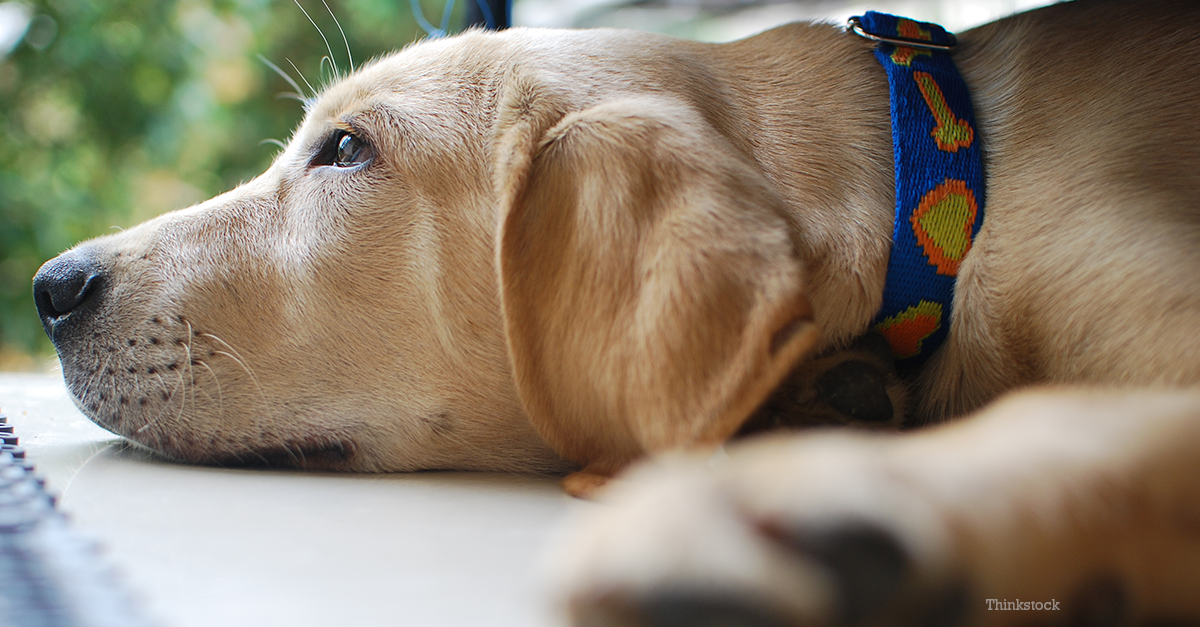The Most Helpful Dog Advice You Will Ever Read

In this article further down you will find a lot of professional insight pertaining to Dogs.
Does a Labrador Retriever Cause Allergies in a Human?
It’s every dog lover’s nightmare: having an allergy to your favorite pet. Fortunately, there are dogs that bother you less, but is the Labrador Retriever also part of it?
The question whether Labrador Retrievers cause allergies to humans is unfortunately less easy to answer than you might think, in fact, no dog is hypoallergenic. However, there are individual dogs that spread fewer allergens, but we’ll talk about that later.
There are certain properties in dogs that can reduce your allergy. In addition, you can reduce allergens in your home by keeping the dog and your house clean.
Does a Labrador Retriever Cause Less Allergies in a Human?
Many people assume that only breeds that do not shed can be suitable for allergy sufferers. This could be true in theory, as they shed less hair and dirt than dogs with normal coat.
However, an allergy is mainly caused by certain proteins in the skin and in the saliva of the dog. These proteins are actually present in every dog, so that no dog would in principle be suitable for people with an allergy to dogs.
Scientists for example, found no difference in the presence of these allergens in dogs of different breeds. So-called hypoallergenic varieties also appeared to carry the allergens with them and spread just as much as other varieties.
A strange trend you may not expect is that some of the Labradors in the study seemed to spread far fewer allergens than other dogs. So how much you suffer from your allergy has little to do with the breed or coat type, but more with the individual dog.
The scientists couldn’t explain why some dogs spread so much less allergens. However, they think that a lot of swimming reduces the amount of allergens on the dog. And swimming is of course something that Labrador Retrievers love.
Of course it can also have something to do with specific genes in the dog. Scientists may one day find out whether there are genes that ensure that the dog carries fewer allergens.
Until then, it is better to see how you react to a specific dog. In that respect, a Labrador can suit you just as well as a Labradoodle.
How to Reduce Allergens on the Dog and in the Environment

Do you have a Labrador or do you really want one and do you or someone close to you have an allergy? The last thing you want is of course that you have to say goodbye to your four-legged friend.
In some cases this will be the best solution for allergy sufferers to avoid serious health problems.
However, there are ways to reduce the amount of allergens in your home. Until now, we couldn’t find anything that completely eliminates allergens from your home, but the following measures are definitely worth trying before looking for a new home for your buddy.
Is a Puppy or Adult Labrador Better If You are Allergic?
Many people prefer a Labrador puppy, because it is fun to experience this period and you can still adjust the dog to your own liking.
However, as we explained earlier, every dog is different when it comes to spreading allergens. That is why it is often better for someone with an allergy to purchase an adult dog.
For example, you can temporarily take in a relocation or shelter dog to see if this dog is right for you. Of course, discuss this with the organization or person who is relocating the dog. After all, you must be able to give the dog back if it turns out not to go well.
You can often not just give a puppy back and it is very sad if you eventually have to find a new owner for the puppy.
https://petsroof.com/labrador-retriever-allergies-human/
Simple Tricks For Making Your Dog Happier And Healthier
While owning a dog is a fun and amazing endeavor, it brings with it a great deal of responsibility. Thankfully, this article was written by other owners to ensure you can learn from their own follies in the past. The advice here will make you the best down owner you can be, so read on.
If you are in the market for a new puppy, make sure you will have enough time to devote to his training. On average, you need to take a young dog outside to do his business eight times a day and that can take a lot away from your schedule. Training takes more time and patience than most people realize.
Talk to your vet about what you feed your dog. If your puppy is very young, it might not be ready to consume specific brands, and feeding them to your pup can result in sickness. Always exercise caution when it comes to your animal's food.
If refresher on working australian shepherd are thinking of getting a new dog for your family, be sure you are prepared for this commitment. Smaller dogs will require at least a 14-16 year commitment, and larger dogs will require at least 10 years. If you are not prepared to own the dog for its entire life, then do not choose a dog as a pet.
Buy or build a home for the dog if they need to stay outside when it's cold. A dog can get ill if he is left out in rough weather, so make sure you have a warm, dry dog house where he can rest. Protect your dog from wind and precipitation by giving him a shelter that has a dry floor and plenty of space.
Although the sound may be cute, your dog's nails shouldn't click along the floor when it walks. That's a sign that the nails are too long. The nails should actually just barely touch the ground. Seek the advice of a professional on what tools are the best for giving your dog a pedicure.
Brush your dog often, even if he's got short hair. It's good for his coat and skin and can alert you of possible issues like fleas, tics and eczema. The dog will also enjoy the attention and brushing him regularly will keep more of his fur from flying around the house and landing on your furniture and carpets.
Try to provide your dog with plenty of opportunities to socialize. Take him on walks to the park or beach where he will be around people and other dogs. Encourage his interactions with others and praise him for good manners. He'll be much more comfortable in any setting and generally happier too.
Determine your dog's specific exercise regimen. Dogs have different fitness needs based their sex, overall health, age, breed mix, or breed. Every dog should have a couple 10-minute walks a day around the block. Dogs between 6 and 18 months, active breed or mixed breeds, terriers, hounds, and herding dogs will most likely require more fitness than others types of dogs.
Although the sound may be cute, your dog's nails shouldn't click along the floor when it walks. That's a sign that the nails are too long. The nails should actually just barely touch the ground. Seek the advice of a professional on what tools are the best for giving your dog a pedicure.
You are probably tempted to give Fido a bite of whatever you're having. You can do this with some foods, but not all. Grapes, caffeine, and chocolate are just some things that dogs aren't supposed to eat. These can be fatal if ingested.
Keep your dog's teeth clean and healthy with regular brushing. Most canines don't mind you brushing their teeth, provided you introduce them to the process slowly and gently. Use a specially designed dog brush, along with other products made just for him. Remember to provide him with toys and biscuits that will also clean and protect his teeth.
Give your dog a great place to sleep. Every dog needs a bed to call his own that is temperature controlled and comfortable. If not, the dog may alternate sleeping locations between undesirable locations, such as your sofa when you're not watching. A bed also gives him a great sense of security and belonging.
Always use a leash when your dog or puppy is out in public. This helps you make sure your dog always stays by you and prevents them from wandering off or getting into trouble. This can also help you restrain your dog if something upsets them so that they don't hurt another animal or person.
Keep in mind that some behavioral problems in your dog could be connected to health issues, especially if your dog is displaying a new behavior. Your dog might become aggressive when you touch it because of a pain and it might have a hard time with house-training because of an infection.
If you have a hard time with keeping your dog from chewing your possessions or your furniture, use a taste deterrent. Most pet stores sell bitter apple sprays or other products you can use to keep your dog from chewing. Choose a product that does not contain any chemicals if possible.
Be careful about the kind of food your dog is eating. You'll find a wide variety of food to buy, but they're not one-size-fits-all. Choose the food that fits both your dog's age and size. It's also tempting to feed your dog foods that humans eat, but your dog isn't human and needs dog food that contain the nutrients that a dog needs.
Make sure that you spend adequate time on each thing that you try to teach your dog. Even though your dog might catch on to something, for example the "sit" command, it may not be mastered. You'll want to make sure that the command is done every time that you ask no matter what situation you are in before you move onto a new command.
When you bring a new dog home, the first thing you should do is make sure they'll always be able to get back to you. Invest in a safe collar and a tag that contains both your name and phone number. Most lost dogs don't make it home, but with a good tag, you can be sure yours will.
By learning more about caring for your dog, you can give him the love and attention he deserves. This means you're going to be able to give a dog a great life for being a part of yours. After all, if you were to become a dog, you'd probably want to have an owner that knew all about you.
I stumbled upon that entry about Dogs while doing a search on the internet. Liked our write up? Please quickly share it. Let other people discover it. Thank-you for taking the time to read it.

